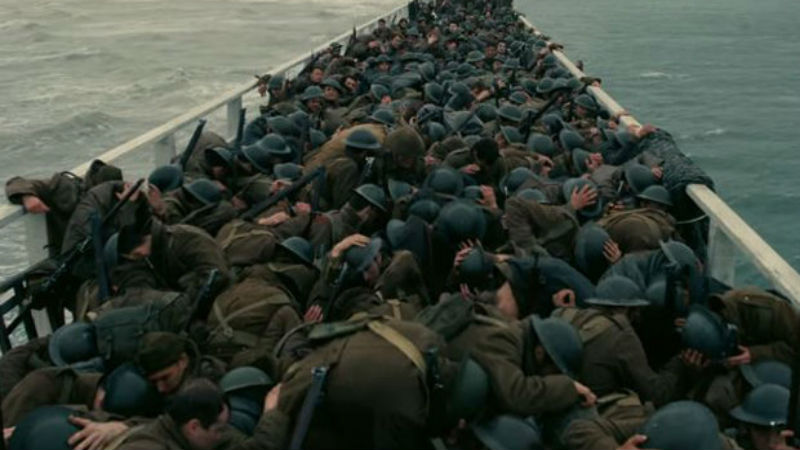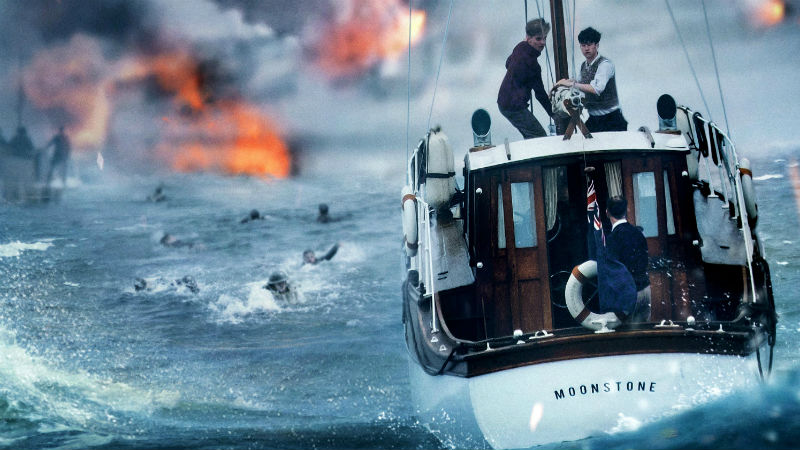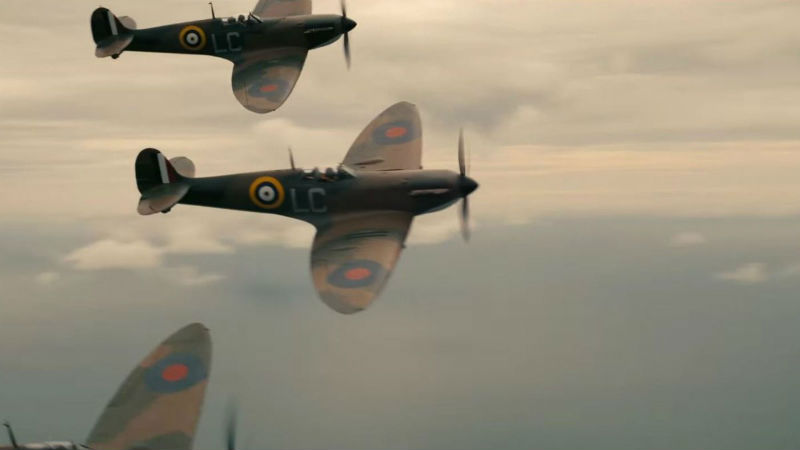




Nigel Farage isn’t my favourite person. He epitomises the side of Britain with which I do not identify: racist, nationalistic, nostalgic of British Imperialism and displaying a smug and yet tacit sense of superiority. I believe in a diverse, tolerant, inclusive and internationalist Britain. A few days ago, I came a across a tweet from Nigel Farage recommending Christopher Nolan’s Dunkirk (accompanied by the image above), a film which Jeremy Clarke had reviewed a couple of weeks earlier for DMovies. Farage said: “I urge every youngster to go out and watch Dunkirk“. On the other hand, our dirty reviewer described it as “a remarkable insight into the dirty side of being part of a war”. So I questioned myself: how is it that someone as reactionary as Nigel Farage liked such a subversive piece? I went to the cinema to see it for myself.
I found Dunkirk excruciatingly boring and cold. The video game language and characters without background and emotional depth made it impossible for me to relate to the film. But it’s not personal taste for cinema that I want to discuss here. It isn’t the historicity of the film either (which has also been questioned). I want to understand why is it that the film resonates with nationalists.

The simple answer of course is: this is a movie about withdrawing from Europe, a heaven-sent analogy for frothing Brexiters. But that’s not all. There’s another reason why Dunkirk has pleased Nigel Narage and most likely other Ukip and Conservative voters. It plays out like a adrenaline-inducing video game or canticle, which can be easily misinterpreted.
I’m not suggesting that everyone who enjoyed the film is a nationalist or a latent warmonger. I wouldn’t even challenge that the film is indeed dirty and subversive in some ways, like Jeremy argued. And I don’t even think that Christopher Nolan willfully endeavoured to make a film that appealed to nationalists, but that’s a risk he was willing to take by making a film that’s not clearly anti-war.

So what’s an anti-war movie?
Dunkirk is not an anti-war film, not at all. Once a film portrays war in a positive and engaging light (even if this engagement is in the shape of adrenaline-induced thrills instead of patriotic chants or more didactic political messages), there’s always a risk that reactionary pundits will seize and claim it in favour of their dubious nationalistic agenda.
War is repugnant and grotesque, and so should anti-war films be. Violence should never be airbrushed, blood should never be removed, and the conflict should never be glorified, romanticised or celebrated in any way whatsoever. Otherwise it can easily slip into a military apologia. A genuinely anti-war movie should never be a feel-good movie. It should be harrowing and disturbing because at war there are no victors. Or a mockery: that’s also a possibility for an anti-war movie.

Dunkirk, on the hand, works like a hypnotising video game. Not coincidentally, the cinema screening I attended was preceded by an advert of the game “Call of Duty WW2”. The Hans Zimmer electrifying soundtrack plays out at 140 bpm, in a tandem with your heart. I would hazard a guess that a Dunkirk theme park ride will follow soon. Highly suggestible young people will undoubtedly leave the cinema subconsciously thinking: “wow, this is so cool. War is like a video game, what a wild ride, I want to be part of it”. Often we don’t remember the content of a movie, yet we remember the sensation and feelings it triggered. This is why war movies can be so dangerous.
Plus there is no blood in the film, which was a conscious decision by Nolan so that he could get a PG13 certificate in the US and a 12A in the UK. These youngsters will think, again subconsciously: “war is not a bad thing at all. Worse that could happen is I will get covered in slime. I won’t get covered in blood”. That’s why a war movie should never be sanitised and made palatable to young people. They are the same people Nigel Farage wants to recruit for his patriotic and xenophobic cause.
The fact that Dunkirk is a film about evacuation, ie victims fleeing an attacker, does not make it anti-war, either. Instead it just makes it Manichaeistic, feeding the hero and the “good vs evil” narrative, therefore spurring animosity and historical rivalries. The Union Jack is to be seen several times, and the duty to “fight” is highlighted throughout Dunkirk.
My conclusion is very clear-cut: war is the maximum expression of nationalism. If you don’t want nationalists to embrace your film, then you must make it blatantly anti-war.
The anti-war battalion
Below is a small list of genuinely anti-war films that we recommend you watch, including one that’s out in cinemas right how (click on the film titles in order to accede to our review):
















